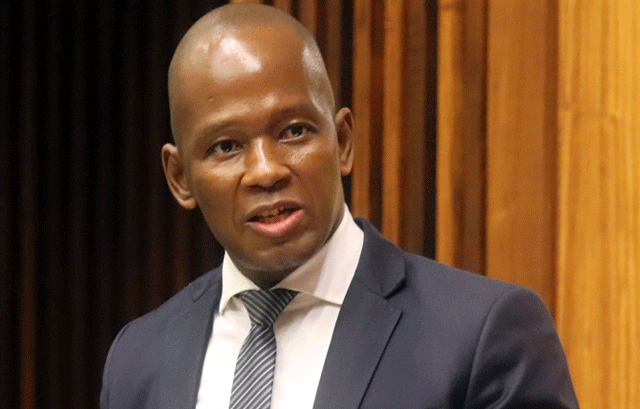
By Bahle Gama
THE Supreme Court has granted government condonation of late filing of a record pending the application to oppose judgement by the High Court in favour of current MP candidate Michael Masilela. Four years later, the Attorney General applied for a condonation appeal for the matter whereby there was the application for reinstatement.
According to a judgment by Judges Jacobus Annandale, Majahenkaba Dlamini, Sabelo Matsebula, and Judy Currie the matter was fully opposed and had reached the hearing stage, however, there was an application for deeming the appeal abandoned in terms of Rule 30 and had also reached the hearing which was also opposed. Then followed the application for condonation for the late filing of the record.
There were also applications for the late filing of heads in one or another of the applications before the court. On the first meeting with the parties for the purpose of setting a date for the hearing of these diverse applications and counter applications, the court had considered it prudent to expedite the hearing of the appeal, it being relatively the more important object in the process.
ALSO READ: The Luke Commission Oxygen purity below WHO standards – Minister Lizzie Nkosi
After allowing the parties a short break to consider ways and means of hitting the target, the court thought the parties had agreed to abandon the preliminary issues and hear the appeal on the set date.
It is generally accepted that the appellants may be at fault, the Respondent wanted costs in his favour. That was briefly considered and resulted in costs to be in the cause.
“But, alas, on the date set for the hearing, the edifice came down crushing like a house of cards at the instance of the Respondent (Masilela) who still wanted a determination on condonation for the late record. It sounded contradictory: it may have been due to a ‘typo’ in the order that turned out to have been issued. That is now water under the bridge,” reads the judgment.
The judgment further states that when the Court could not begin with the hearing of the appeal as had been anticipated, a short break to obtain the recording of what had happened on the first day, the parties had occasion to consider the way forward.
ALSO READ: Isolated Morocco earthquake survivors feel forgotten by state as they await help
When the Court reconvened, the judges were informed by the learned Attorney-General that a tender had been offered to but rejected by Masilela. The result was that the application for condonation be heard then and defer the appeal indefinitely or pending the outcome of the condonation application.
The appealed judgment was reportedly delivered on October 22, 2018, and the appeal in question was noted on November 21, 2018. The record on appeal was lodged with the Registrar of the Court on February 13, 2019 which was considered to be three weeks late.
Rule 30 (4) prescribes that unless there is an extension of time, if a record of appeal is not lodged within a period of two months from date of noting the appeal, the appeal shall be deemed to have been abandoned. However, Rule 17 of the Rules of this Court states that a litigant who has failed to comply with any rule of the Court may apply for condonation. In the application for the Court’s indulgence, the litigant must show sufficient cause.
ALSO READ: Russia expels two US embassy staff for ‘illegal activity’
After the alleged lodging of the record, seemingly nothing happened; both parties seemingly went on vacation. The apparent explanation for the lull was that Masilela had been unable to secure a place in the Senate and it would be some four years or so before there was a need to employ the services of the impugned section 5(3).
The judgement further states that somebody within the AG’s circle must have remembered that the validity or otherwise of section 5 (3) had not been finally settled at the appeal level. This was about four years down the line and elections were again due soon. The AG hurriedly applied for ‘reinstatement’ of the appeal as if the appeal had earlier been on the roll but later removed therefrom.
“Unfortunately for the Appellants (AG), reinstatement is harder to justify than instatement. The latter is normally at the instance of the Registrar, with or without support of the litigant(s). In other words, if the appeal, with the record lodged, had not been enrolled for hearing, the Appellants needed only to request the Registrar to so enroll it — unless there was reason not to so enroll without a hearing.”
The issue before Court was thus not that the record of appeal was not lodged, but that it was lodged out of time requiring the granting of condonation to clear the way for hearing the appeal.


